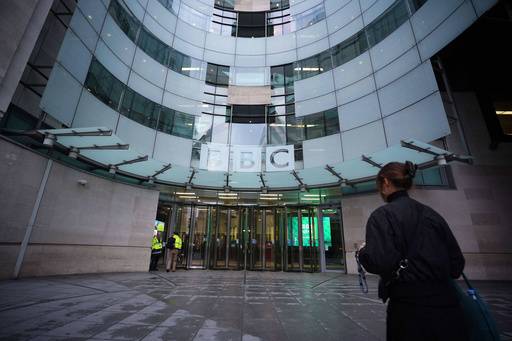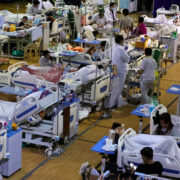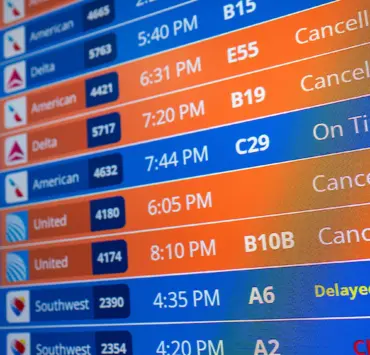Top BBC bosses resign after criticism of the editing of Trump’s Jan. 6, 2021, speech

LONDON—The head of the BBC and the British broadcaster’s top news executive both resigned on Sunday after criticism of the way the organization edited a speech by US President Donald Trump.
The BBC said Director Gen. Tim Davie and news CEO Deborah Turness had both decided to leave the corporation.
Britain’s publicly funded national broadcaster has been criticized for editing a speech Trump made on Jan. 6, 2021, before protesters attacked the Capitol in Washington.
Critics said that the way the speech was edited for a BBC documentary last year was misleading and cut out a section where Trump said that he wanted supporters to demonstrate peacefully.
In Trump’s speech on January 6, 2021, before supporters at the Ellipse in Washington, he said “everyone here will soon be marching over to the Capitol building to peacefully and patriotically make your voices heard.”
He followed this with “We’re going to walk down to the Capitol, and we’re going to cheer on our brave senators and congressmen and women …”
In the BBC documentary version, the phrase “we’re going down to the Capitol” was used and the rest of his words were cut. Instead, the phrase “I’ll be there with you,” which was not in the speech, was added.
Then, the documentary spliced another part of Trump’s speech that was said some 50 to 60 minutes later and immediately connected it to his earlier words.
It then produced the following: “we’re going down to the Capitol, I’ll be there with you. And we fight. We fight like hell …”
‘Entirely my decision’
In a letter to staff, Davie said quitting the job after five years “is entirely my decision.”
“Overall the BBC is delivering well, but there have been some mistakes made and as director general I have to take ultimate responsibility,” Davie said.
He said that he was “working through exact timings with the Board to allow for an orderly transition to a successor over the coming months.”
Turness said that the controversy about the Trump documentary “has reached a stage where it is causing damage to the BBC—an institution that I love. As the CEO of BBC News and Current Affairs, the buck stops with me.”
“In public life leaders need to be fully accountable and that is why I am stepping down,” she said in a note to staff. “While mistakes have been made, I want to be absolutely clear recent allegations that BBC News is institutionally biased are wrong.”
Trump posted a link to a Daily Telegraph story about the speech-editing on his Truth Social network, thanking the newspaper “for exposing these corrupt ‘journalists.’ These are very dishonest people who tried to step on the scales of a Presidential Election.” He called that “a terrible thing for Democracy!”
White House press secretary Karoline Leavitt reacted on X (formerly Twitter), posting a screen grab of an article headlined “Trump goes to war with ‘fake news’ BBC” beside another about Davie’s resignation, with the words “shot” and “chaser.”
Pressure
Pressure on the broadcaster’s top executives has been growing since the right-leaning Telegraph published parts of a dossier compiled by Michael Prescott, who had been hired to advise the BBC on standards and guidelines.
As well as the Trump edit, it criticized the BBC’s coverage of transgender issues and raised concerns of anti-Israel bias in the BBC’s Arabic service.
The 103-year-old BBC faces greater scrutiny than other broadcasters—and criticism from its commercial rivals—because of its status as a national institution funded through an annual license fee of 174.50 pounds ($230) paid by all households with a television.
The BBC airs vast reams of entertainment and sports programming across multiple television and radio stations and online platforms—but it’s the BBC’s news output that is most often under scrutiny.
The broadcaster is bound by the terms of its charter to be impartial in its output and critics are quick to point out when they think it has failed. It’s frequently a political football, with conservatives seeing a leftist slant in its news output and some liberals accusing it of having a conservative bias.
It has also been criticized over its coverage of the Israel-Hamas war in Gaza. In February, the BBC removed a documentary about Gaza after it emerged that the child narrator was the son of an official in the Hamas-led government.

















